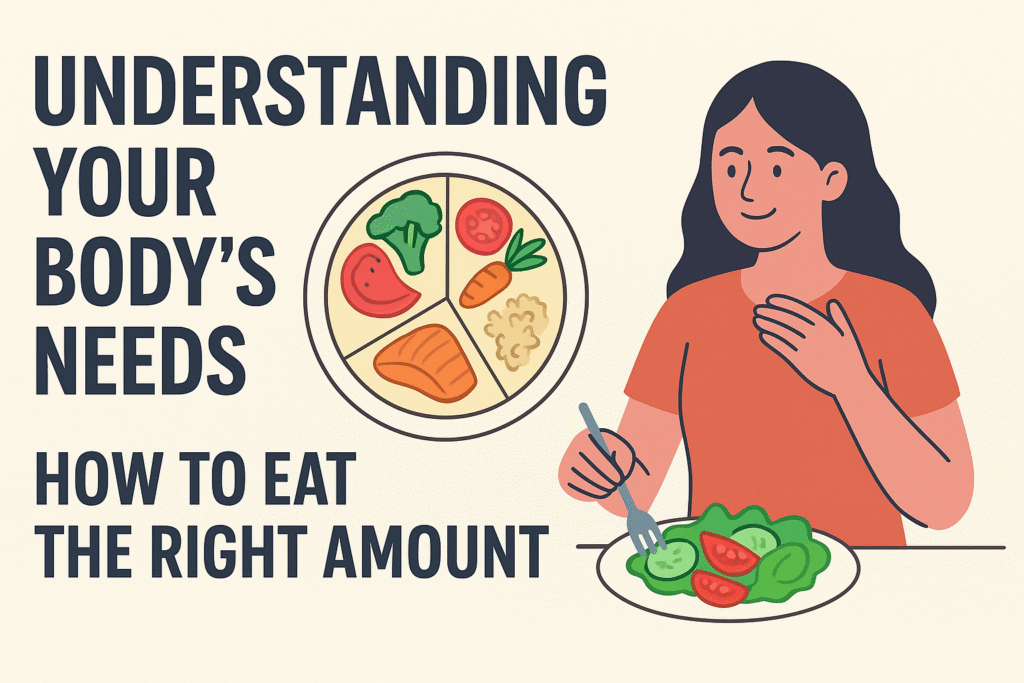
Understanding Your Body’s Needs: How to Eat the Right Amount
Food is one of the important parts of our daily life. It provides energy to our bodies and supports normal daily activity, mental health, and the immune system. But for many of us, we do not know exactly how much food our bodies need. As a result, some people tend to overeat and become overweight, while others tend to undereat and become weak. Therefore, it is necessary to learn what proper dietary intake is to maintain good health.
How to Determine Your Body’s Needs
Understand Your Basal Metabolic Rate (BMR)
BMR is the minimum number of calories your body must take in at rest to keep you breathing, circulating blood, and maintaining body cells. It is different for each age, gender, weight, and height.
Consider Your Daily Activity Level
Physically active people (athletes or manual laborers) need more calories, while people who work at a desk all day need less.
Listen to Your Hunger Cues
Real hunger usually shows up as a slight emptiness in the stomach, reduced mental function, or light dizziness.
Distinguish Between Thirst and Hunger
Sometimes your body is thirsty, not hungry. Try a glass of water first when you feel hungry.
Practical Tips for Eating the Right Amount
Use the Plate Model
You should get half your plate vegetables and fruits, a quarter — something like fish, chicken, beans, and the last quarter carbohydrates, like rice or bread.
Eat Slowly
Chew each bite 20–30 times. This gives your brain enough time to register fullness and helps slow down your appetite.
Use Smaller Plates
Smaller dishes make you feel full with less food.
Maintain Regular Meal Times
Eating at infrequent times can interfere with your body ‘s hunger and satiety signals.
Avoid Processed Foods
Whole, natural foods provide long-lasting energy, while processed foods cause quick spikes and drops in hunger.
Risks of Overeating and Undereating
- Overeating → Obesity, diabetes, digestive issues, higher risk of heart disease.
- Undereating → Weakness, lowered immunity, muscle loss, reduced focus and memory.
Scientific Evidence
According to the World Health Organization (WHO), adults generally require between 2,000–2,500 calories a day, though the precise amount depends on lifestyle and activity level.
Researchers reported in the American Journal of Clinical Nutrition that eating slowly and using smaller plates may help reduce calorie intake by 15–20%.
The National Institutes of Health (NIH) states that one of the most effective weight management techniques is listening to your body’s natural hunger and fullness signals.
Conclusion
By knowing what your body really needs, you don’t have to worry about counting calories. Listen to your body, choose healthy foods, and keep your portions right. Good health starts with what you eat every day. Enjoy your food, but make sure it always keeps your body in the best shape possible
